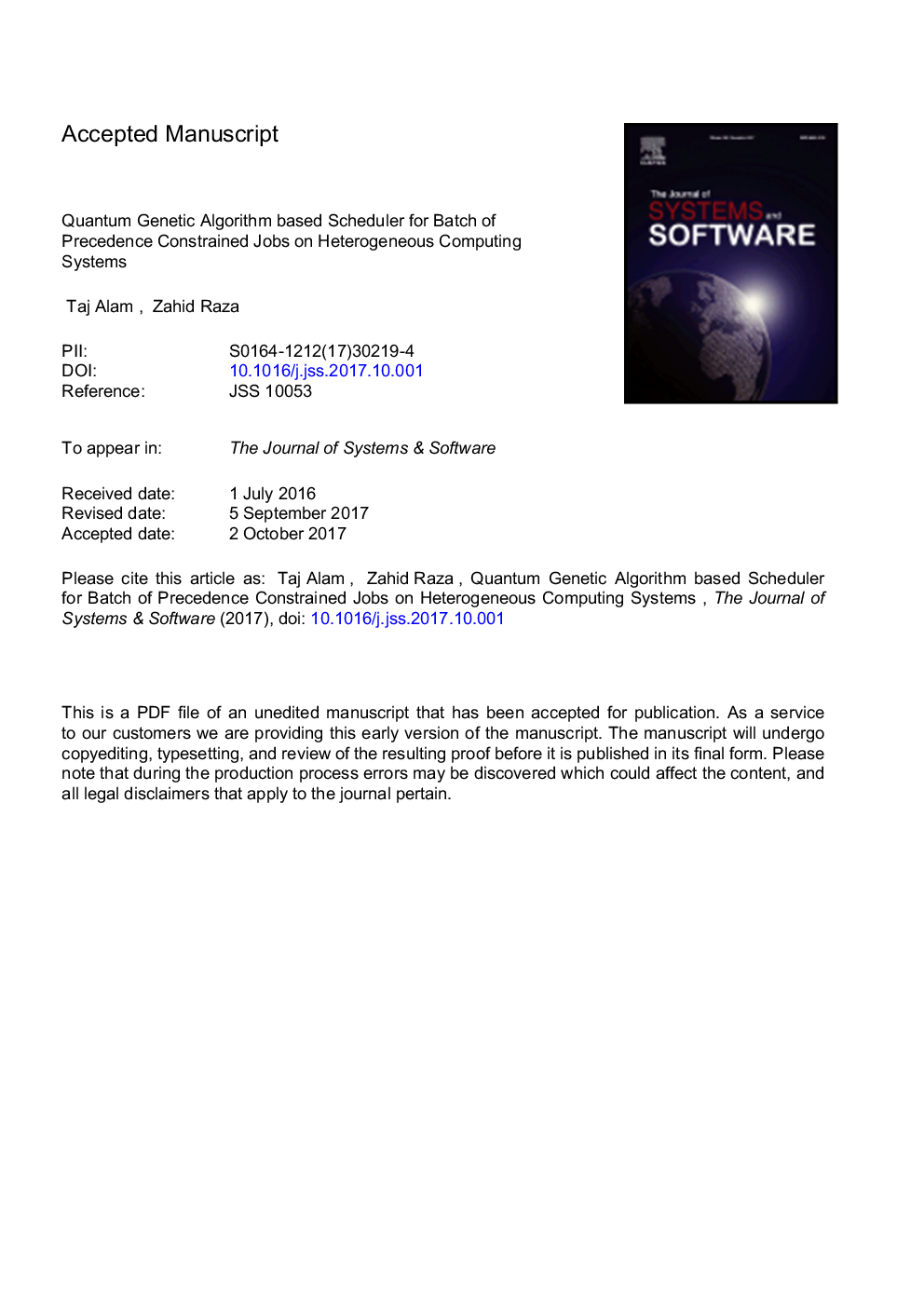| کد مقاله | کد نشریه | سال انتشار | مقاله انگلیسی | نسخه تمام متن |
|---|---|---|---|---|
| 6885426 | 1444512 | 2018 | 37 صفحه PDF | دانلود رایگان |
عنوان انگلیسی مقاله ISI
Quantum genetic algorithm based scheduler for batch of precedence constrained jobs on heterogeneous computing systems
ترجمه فارسی عنوان
برنامه ریزی مبتنی بر الگوریتم ژنتیک کوانتومی برای مجموعه ای از مشاغل محدود محدودیت در سیستم های محاسباتی ناهمگن
دانلود مقاله + سفارش ترجمه
دانلود مقاله ISI انگلیسی
رایگان برای ایرانیان
کلمات کلیدی
سیستم های توزیع ناهمگن، نرم افزار گردش کار برنامه ریزی دسته ای، تعادل بار، عدم تعادل بار، نسبت هزینه متعادل کننده بار،
موضوعات مرتبط
مهندسی و علوم پایه
مهندسی کامپیوتر
شبکه های کامپیوتری و ارتباطات
چکیده انگلیسی
Distributed systems are efficient means of realizing High-Performance Computing (HPC). They are used in meeting the demand of executing large-scale high-performance computational jobs. Scheduling the tasks on such computational resources is one of the prime concerns in the heterogeneous distributed systems. Scheduling requires optimizing either single objective or multiple objectives. Load Imbalance (LIB) and Load balancing Cost Ratio (LCR) are two such objectives. LIB and LCR are used in deciding the distribution of load over available resources for utilization and the computational cost respectively. Scheduling jobs with precedence constraints are NP-complete in nature. Scheduling requires either heuristic or metaheuristic approach for sub-optimal but acceptable solutions. Quantum computing is one such metaheuristic approach. It has proven to be promising in addressing the multi-objective scheduling problems with an effective exploration of the search space. This work proposes a dual-objective Quantum-inspired Genetic Algorithm based Load Balancing Strategy (QGLBS) for workflow application with the objective of optimizing both LIB and LCR. The DAG representation of the batch of jobs helps in effective exploitation of the parallelism available at the job level as well as the sub-job level with the modules at the same level of the batch executing at the same time. The strategy ensures that the communication cost and the critical path are considered in making scheduling decisions. QGLBS exploits the features of Quantum Computing and Genetic Algorithm to establish the Pareto fronts using non-dominated sorting based on NSGA-II. Hypervolume measures are used to compare the results of the quality assessment of Pareto fronts. Simulation study on Gridsim ensures that the QGLBS approach works effectively for real life scenario with various workflow applications.
ناشر
Database: Elsevier - ScienceDirect (ساینس دایرکت)
Journal: Journal of Systems and Software - Volume 135, January 2018, Pages 126-142
Journal: Journal of Systems and Software - Volume 135, January 2018, Pages 126-142
نویسندگان
Taj Alam, Zahid Raza,
